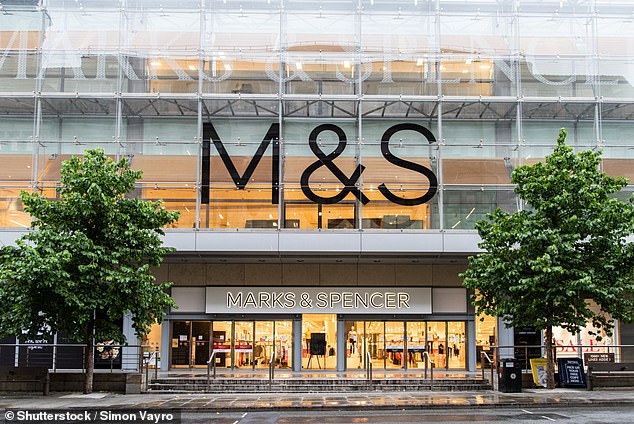The scale of the setback because of the cyber-attack on Marks & Spencer should not be underestimated.
In an age of online shopping and AI the M&S experience along with problems reported last night at Harrods and earlier in the week at the Co-op represent a clear and present danger to retail, commerce, and the broader economy.
It would be foolish to underestimate the ability of ransomware operators, such as Scattered Spider, believed to be the source of the M&S attack, to breach vulnerable defences.
In recent times, the corporate world has had to adjust to the risk. The services of UK start-ups such as Darktrace, now in private equity hands, and the role of insurance in addressing cyber-risk have become ever more important.
Silicon Valley may have conquered the world but has failed miserably on security. Indeed, penetration of computer systems may prove as big a challenge for underwriters as climate change.
For M&S, the assault on its systems, which began just ahead of the busy Easter holiday, could not come at a worse time.

Hacked: M&S Operations have been damaged, and it is likely that the privacy of some customer data may have been compromised
The stores are up and running and its fashion, brand and food innovation, the secret to its recovery from the doldrums, continues apace.
Operations have been damaged, and it is likely that the privacy of some customer data may have been compromised.
Nevertheless, that needs to be kept in perspective. Every time we press the ‘I accept’ button when buying services online, it is an open invitation to systems discovering more about you, your tastes, and finances than we would care for outsiders to know.
Some of the problems that M&S is experiencing are manifest. Empty shelves in stores are being seen more frequently than usual although typically the M&S fresh food and produce offerings sometimes sell out towards the end of the day.
The more serious hold-ups are in the robotic warehouses where goods are automatically picked. It may be a return to slower hand-picking for some time.
There are possibly problems in the supply chain and communications within and between stores. HQ may be less enabled.
All this is hugely challenging for chief executive Stuart Machin and his team as well as chairman Archie Norman, whose job it is to make sure that investors are properly appraised.
If, as speculated, Scattered Spider is the source of the breach, then the issue for management is whether to reach out and deal with them or put matters in the hands of the authorities.
The choice by M&S to call in the National Crime Agency and inform the Information Commissioner’s Office might suggest it will refrain from paying a ransom. But we can’t be sure.
It is fascinating to note, however, that, in the week that the Chancellor Rachel Reeves advocated bringing crypto currency in from the cold, in line with thinking in Washington, those demanding ransom generally want it to be paid in crypto.
It is, after all, the preferred medium of exchange for money-launderers, drug dealers and random crooks.
Both the Financial Conduct Authority and Bank of England have been extraordinarily cautious about its use.
When this nightmare is over for M&S, judging from the extent of the damage as we know it so far, chairman Norman and chief executive Machin will have the unenviable task of evaluating what happened.
This will almost certainly require outside lawyers to establish responsibility and to understand why defences were breached.
It is axiomatic that hackers seek the weakest links in the complex eco-system of companies, which can reach deep into the supply chain, to penetrate the technology. Inevitably, the financial impact will be consequential.
So far, after hitting a year’s peak of 411p in April, shares have shown remarkable resilience, trading down – but well above 12-month lows.
That suggests confidence in management to get on top of the problem, and not suffer long-term damage to recovery and trading prospects.
Even so, the attack will be a severe psychological blow, and the decision to delay advertising jobs for the time being demonstrates the depth of the disruption at a company on an emergency footing.
DIY INVESTING PLATFORMS

AJ Bell

AJ Bell
Easy investing and ready-made portfolios

Hargreaves Lansdown

Hargreaves Lansdown
Free fund dealing and investment ideas

interactive investor

interactive investor
Flat-fee investing from £4.99 per month

InvestEngine

InvestEngine
Account and trading fee-free ETF investing
Trading 212
Trading 212
Free share dealing and no account fee
Affiliate links: If you take out a product This is Money may earn a commission. These deals are chosen by our editorial team, as we think they are worth highlighting. This does not affect our editorial independence.
This article was originally published by a www.dailymail.co.uk . Read the Original article here. .

